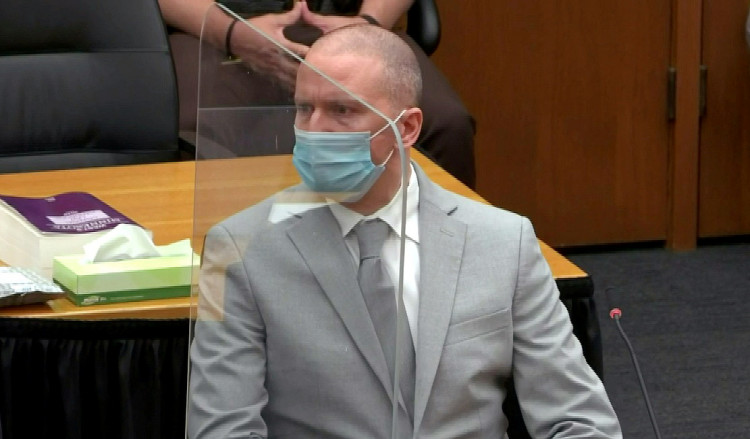Former police officer Derek Chauvin appealed his murder conviction Thursday and also requested the courts to allow him to represent himself while he looks for an attorney.
Chauvin made his appeal within the 90-day deadline set by the courts. He was convicted of third-degree murder, second-degree manslaughter, and second-degree unintentional murder.
Chauvin was slapped with the convictions after George Floyd died while he was kneeling on his neck for about nine minutes in the middle of an arrest in May last year. Chauvin initially agreed to plead guilty to third-degree murder as part of a deal with prosecutors. However, then-Attorney General William Barr had rejected the deal.
The court sentenced Chauvin to 22.5 years in prison. The sentence was higher than what was initially presumed as the judge presiding the case sided with prosecutors in their claim that there were aggravating factors that led to Floyd's death.
In his appeal, Chauvin cited 14 different reasons why the court should reconsider his conviction. This includes arguments on why the trial was not moves and why the jury wasn't sequestered properly. Chauvin argued that the jury selected for the case was "clearly biased."
Chauvin also challenged the addition of the third-degree murder charge in his conviction.He cited the Minneapolis Supreme Court's decision to retract the third-degree murder conviction of another former Minneapolis police officer, Mohamed Noor, who had fatally shot an Australian woman. Noor was instead resentenced for manslaughter.
Apart from appealing the convictions, Chauvin also requested the court to allow him to represent himself as he had been denied a public defender. Chauvin asked that he be allowed to defend himself during the appeal until he is able to get an attorney.
Chauvin said that he can no longer afford a private attorney at this time as he has no income apart from his prison wages. The Minnesota Police and Peace Officers Association had initially shouldered Chauvin's legal fees during the trial but they then pulled support after he was convicted.
Last week, Chauvin had pled not guilty to violating another person's civil rights in a separate case that occurred in 2017. Chauvin reportedly used the same technique of placing his knee on the neck of the person he was arresting during that time.




